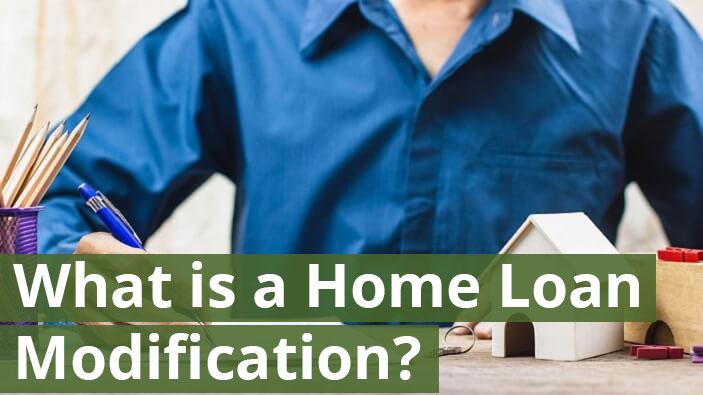Significant life changes that affect income can happen, and when they do, homeowners are hit hard. In addition to a slew of living expenses that must be paid — groceries, water, keeping the lights on, etc. — there is a big expense that is sometimes hard to maintain when a financial difficulty happens. A home mortgage is often the largest bill a family has and the bill that doesn’t get paid when money is tight.
For borrowers and lenders who want to avoid the negative impacts of a foreclosure, there is a less extreme choice called a home loan modification.
Key takeaways
- A home loan modification is a change made by a lender to the terms of a mortgage to help a borrower who is struggling to make payments.
- The changes made can include reducing the interest rate, extending the repayment period, or changing the mortgage type.
- The benefits of a home loan modification include avoiding foreclosure, reducing monthly payments, and having a fresh start to get back on track financially.
What is a loan modification?
A loan modification is when a lender changes any one of several terms of a loan, typically because the borrower cannot pay. The changes made can include extending the length of time for repayment, reducing the interest rate, or switching up the type of loan. While loan modification can be applied to any type of loan, it is most often used for mortgages.
Eligibility for a loan modification will change from lender to lender, but borrowers facing financial hardship are eligible to apply. These hardships may include any of the following: natural disaster, increases in housing costs, a job change that entails a lower salary, divorce, death of a family member (and loss of their earnings), and disability or illness.
Benefits of loan modification
You don’t want to be in a place where you need a loan modification, but there are plenty of benefits of loan modification if disaster strikes.
Resolving delinquency status with the mortgage company
If you’ve missed a mortgage payment or two, you want to resolve this quickly to avoid damage to your financial history.
Reduce monthly payments
If you are bringing in less income for some reason, a loan modification can lower your monthly payments so that you can keep your home.
Less damaging to credit score
If the bank ends up having to foreclose on your home, it destroys your credit score for years. With a loan modification, you may damage your credit score with a loan modification, but it won’t be as dire.
Avoid foreclosure
By reducing monthly payments and adhering to your loan’s new terms, you can avoid foreclosure on your home. This is better for your credit and also allows you to keep your house.
Fresh start
If you find yourself struggling with payments because of financial hardship, a loan modification may help you to get back on track and make an actionable plan for getting your financial life in line.
Why do lenders allow house loan modifications?
A lender will sometimes agree to a house loan modification because they have done an analysis and decided that a modification will be less of a loss to themselves than a foreclosure or a charge-off. It becomes a win/win for both parties when the borrower can begin making regular payments.
How does a mortgage loan modification work?
When a borrower decides that they cannot keep up with mortgage payments, they may apply to the lender for a loan modification. The lender will then assess the hardship and decide whether loan modification will solve the problem. For example, they are likely to reject someone who has lost a job, while they will likely approve someone who has merely taken a pay cut. Some lenders will require a history of one missed or late mortgage payment for a borrower to qualify. If you are found eligible, there are several ways that the lender can modify your loan.
Reducing rate interest
By lowering the interest rate, your monthly mortgage payment can go down by hundreds of dollars. This action is similar to home refinancing, except that there are no fees or closing costs involved.
Changing mortgage type (adjustable to fixed-rate)
The lender may also change the type of mortgage plan. By switching from an adjustable-rate mortgage, where fluctuating rates may cause an increase in monthly payments, to a fixed-rate mortgage in which payments remain steady, you will lower the risks of inflated payments with an increase in market rates.
Extending repayment period
By lengthening the term of the mortgage, your payment stretches over a greater period of time and lowers the current monthly payment. Realize, however, that if you extend the loan, you will end up paying more over time. It will just become easier to pay at the moment.
Adding late fees to principal
Another option is to take any late fees, interest, or escrow and roll these into the principal. Then this new amount will be stretched over the life of your loan, making it easier to pay down these smaller amounts over time.
Principal reduction
This last option is rare, but your lender may even reduce the principal to help lower payments. This is more common during times of widespread crisis; the principal reduction was more commonly seen during the housing crisis when home values plummeted across the board. Getting this kind of modification would take a combination of a poor housing market, not too much owed on loan, and loss analysis for foreclosure going your way.
Basic requirements to apply
Lenders have their own individual standards for doling out loan modifications, but there are some basic requirements to fulfill before anyone can apply. You will need to have documents to back up your financial status (this includes details on both your income and expenses). Along with this, you will need to provide a letter that describes your economic struggles. The lender will want proof that a loan modification will be a good decision for themselves. Therefore, those with high DTI may be rejected, as a large amount of debt may demonstrate the applicant as unable to pay regardless of a loan modification. You will also be required to submit an IRS form 4506 to verify that you will be able to pay a modified loan.
Do you need to apply for a home loan modification?
If you are a homeowner who has suffered a financial hardship that leaves you struggling to pay your mortgage timely (or at all), you want to speak to your lender right away. Show good faith by explaining your situation immediately before you miss a payment. They will be able to guide you through their company requirements.
If you apply for a loan modification, you need to have some sort of income. This isn’t debt forgiveness; it is a lender trying to make something out of a mortgage to prevent a foreclosure loss to themselves.
Contact us today
If you are struggling to pay but could make payments if they were smaller, then a home loan modification may be right for you. Contact your Hero Home Programs™ experts today and ask how they can help connect you with local partners to see if you qualify for a home loan modification loan.













